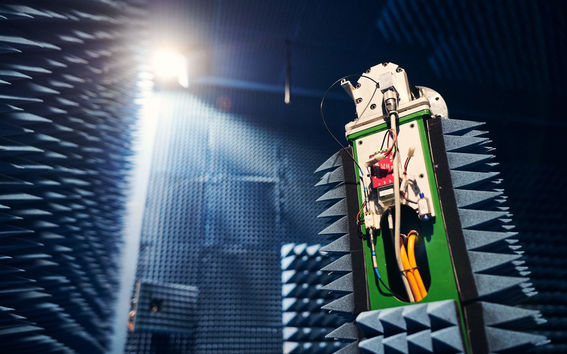New doctoral programme focuses on the energy efficiency of radio waves

Aalto University and Nokia have announced the launch of a new XG Doctoral Programme which launches later this year. The programme, which has been funded with support from Nokia, will focus on the development of hardware for new mobile communications systems. It will place a particular emphasis on the design and construction of energy-efficient integrated circuits and antenna systems. In the future, equipment with an energy-efficient design will affect the development of 6G, IoT and other technologies in a variety of fields, such as transportation, online communications and health. The letters ‘XG’ refers to future generations of mobile communications systems and to the new equipment related to them.
Jussi Ryynänen, Head of Department and Professor at the Department of Electronics and Nanoengineering, explains that the new doctoral programme will further strengthen their competency in future networks, which has significance for Finland and Europe.
‘As the technology keeps finding applications in new fields, Finland has a great new opportunity to invest in our already strong expertise in hardware and ICT. Our goal is to provide students with knowledge that industry will need in the future,’ said Ryynänen.
Nokia's funding will support long-term academic research and offer students an interesting and concrete way for approaching the topic. Nokia's investments in radio hardware and in the development of system circuits are also welcomed at the Otaniemi campus.
‘In the research of radio hardware, we focus on higher frequencies and smarter antennas; these can be used to improve the targeting of radio wave energy, thus enabling higher data transfer rates and better energy efficiency,’ explains Ville Viikari, Professor of Radio Engineering.
‘Looking ahead to 2030 and beyond, we see exponential growth in mobile traffic. The evolution towards 6G requires fresh thinking in order to push the boundaries of radio hardware design. We are thrilled to launch the XG Doctoral Programme with Aalto university to stimulate innovation and drive this technology forward,’ says Ari Kynäslahti, Head of Strategy and Technology at Nokia Mobile Networks.
The first doctoral students were recruited to the programme at the end of 2022. Initial results and findings into this new programme are expected later this year, with efforts to utilise the new research data planned. In addition to the research groups of Professor Viikari and Professor Ryynänen, Aalto University has also recruited new doctoral students to the research group of Professor Katsuyuki Haneda.
Long-term collaboration
For decades, Nokia has been an important partner for Aalto. Currently, Aalto and Nokia have approximately 20 ongoing research projects involving professors and postdoctoral researchers, as well as doctoral students and master's students. These projects include diverse topics such as 5G technology, signal processing, antenna technology, artificial intelligence, machine learning, the Internet of Things, mobile cloud services, and materials. Nokia is also an important employer of Aalto alumni and students.
Nokia donated EUR 500 000 to Aalto University's field of technology in the Finnish government's matching funding campaign, which ended June 2022. The donation is used to fund doctoral programmes in quantum technology and 6G / XG technology.
Nokia
Communications
Phone: +358 10 448 4900
Email: [email protected]
- Published:
- Updated:
Read more news

Broadband miniaturized spectrometer research receives QTF annual discovery award 2024
The clarity and compelling presentation of the research were one of the reasons why Doctoral Researcher Md Uddin earned the prize for the research paper, which was published in Nature Communications.
Robotics needs safe behavior patterns
Robotics and autonomous systems are developing rapidly. Algorithms that withstand disturbances and uncertainties in the system model and environment are critical for development.